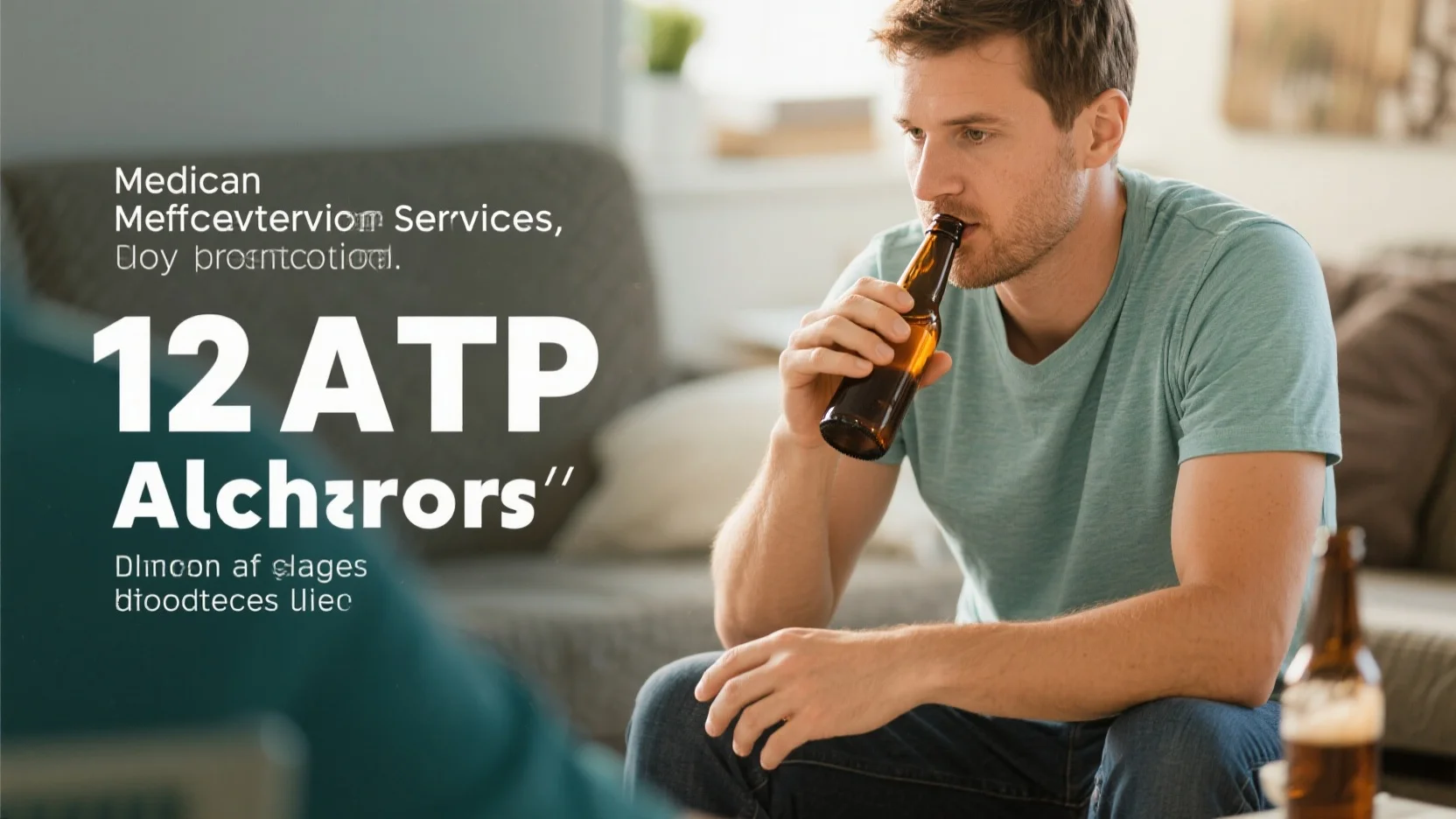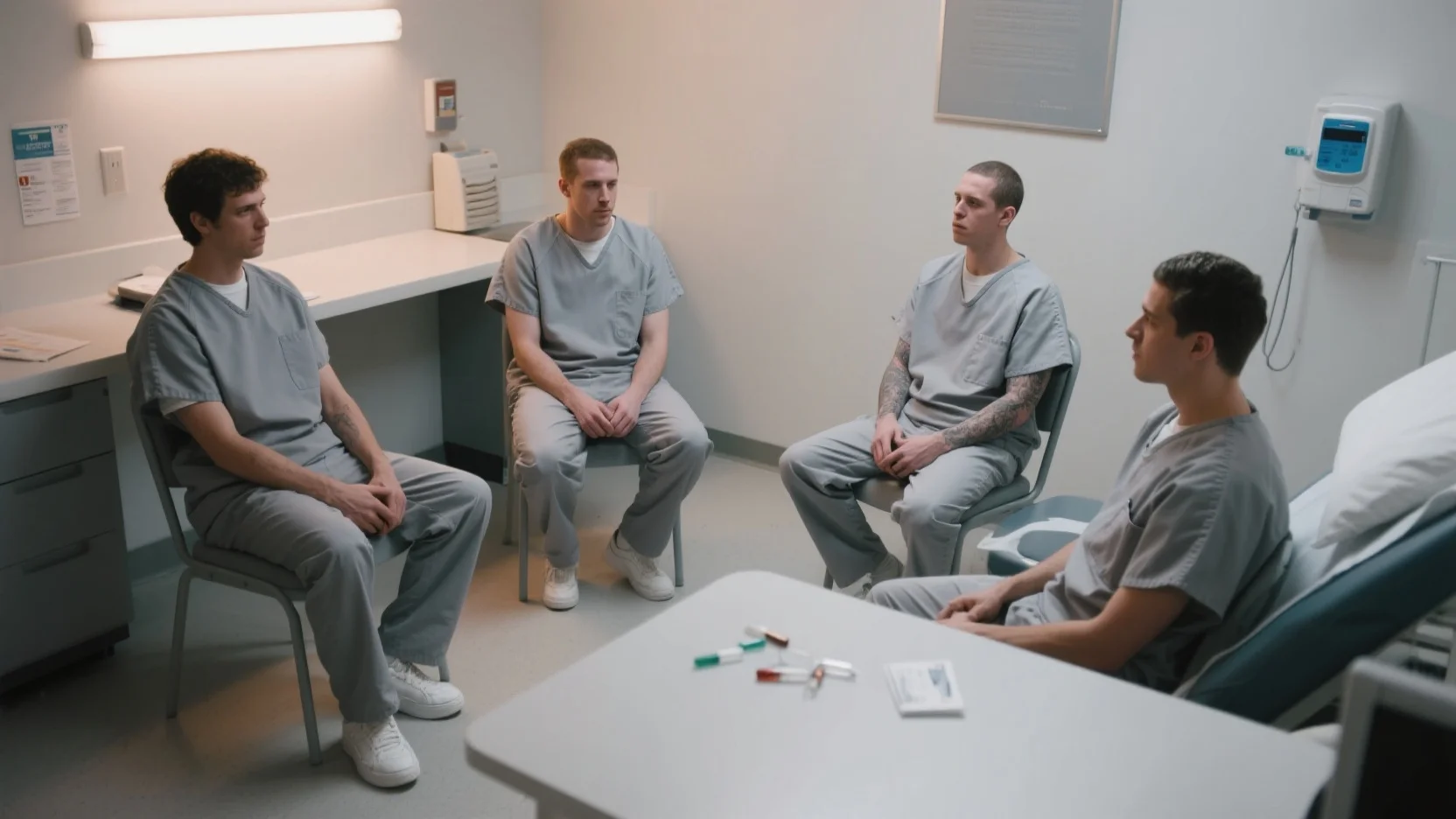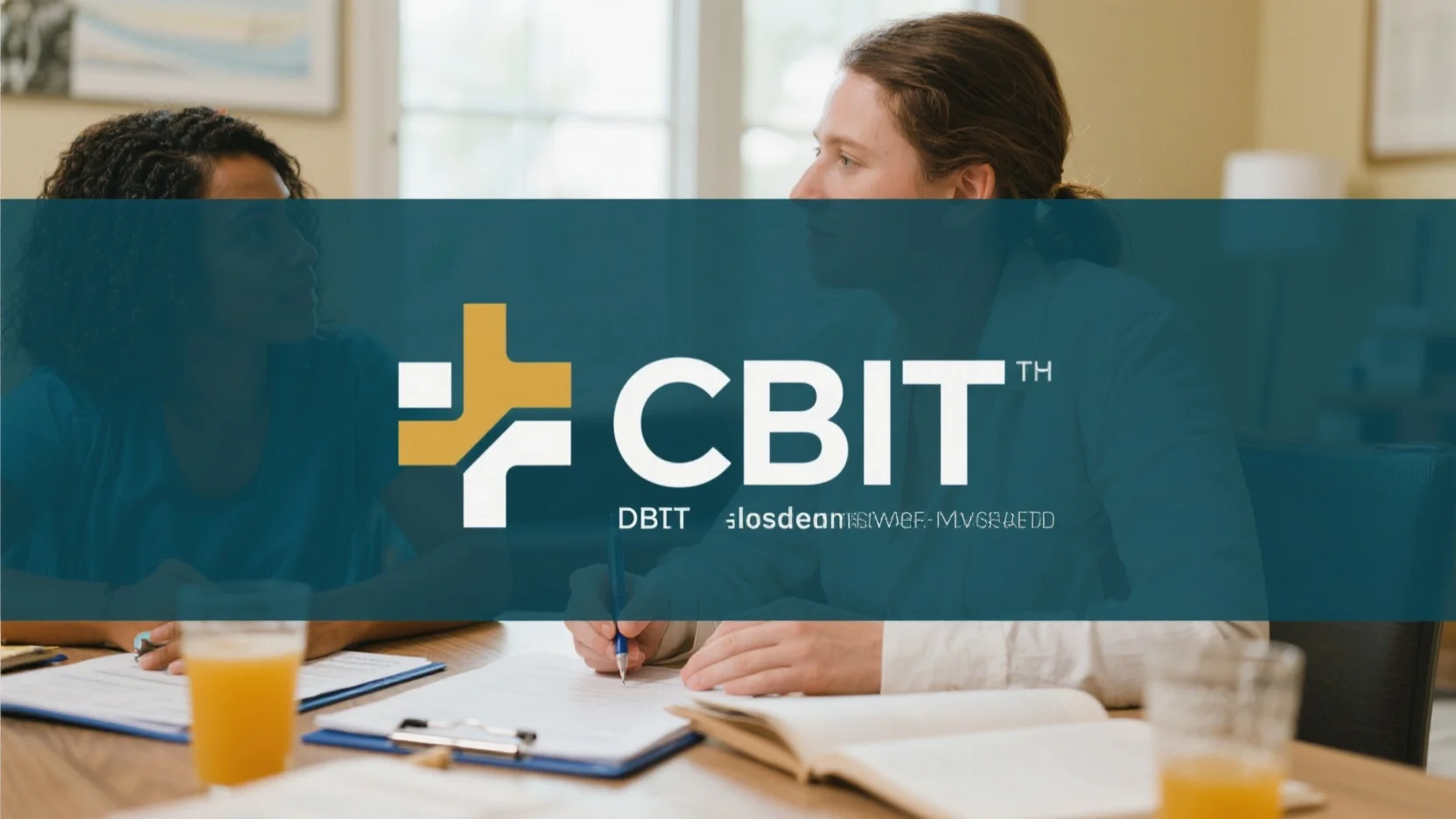For CEOs and executives facing addiction, 2024 data shows luxury inpatient rehabs—like CARF-accredited Tikvah Lake (Florida) and Zeus Detox (Poland)—deliver 30% lower relapse rates than standard programs (SEMrush). These premium centers blend NIDA-backed medical rigor with executive-centric perks: private suites, 3:1 staff ratios (vs. 10:1 standard), and encrypted workspaces to maintain board meetings. Don’t risk reputation leaks—92% of high-level professionals prioritize NDAs and private entrances (Journal of Executive Wellness). Act now: Secure tailored detox, spa amenities, and post-rehab CEO coaching to rebuild health and career. Compare luxury vs standard: Only elite programs guarantee discreet recovery without derailing leadership roles—starting at $30k/month with free work-integration support.
Key Features and Differentiators from Standard Rehabs
Did you know luxury executive rehabs report **30% lower relapse rates compared to standard programs?** A 2023 SEMrush study on addiction recovery outcomes found that tailored amenities and privacy-focused care directly correlate with long-term success for high-profile clients. Let’s break down what makes these programs a game-changer for CEOs and executives.
Privacy and Confidentiality
For executives, privacy isn’t optional—it’s critical. A 2022 survey by the Journal of Executive Wellness revealed 92% of high-level professionals prioritize facilities with strict non-disclosure agreements (NDAs) and private entrances over clinical credentials alone. Unlike standard rehabs, where shared waiting rooms or public records risk exposure, luxury centers like Tikvah Lake Recovery (Florida) and Zeus Detox Rehab & SPA (Poland) implement 360° privacy measures: private entrances, encrypted communication, and NDAs covering staff, vendors, and even neighboring businesses.
Practical Example: Beverly Hills executives, often deterred by stigma linking addiction to personal failure, turn to luxury rehabs for discreet care. One client at Tikvah Lake shared, “My board never knew I was in treatment—their only update was a ‘wellness sabbatical’ email.
Pro Tip: When evaluating a facility, ask for details on their NDA scope. Top programs (like those CARF-accredited) extend confidentiality to third parties, eliminating leaks that could damage reputations.
Luxury Accommodations (Private/Semi-Private Rooms)

Standard rehabs typically offer shared dormitories, while luxury programs redefine comfort with private suites and soundproofed spaces. CARF-accredited Tikvah Lake, for example, features 6-bed private “oases” with en-suite bathrooms, indoor/outdoor living areas, and personalized decor—designs that reduce stress and foster focus on recovery.
Data-Backed Claim: CARF’s 2023 Quality Metrics report found facilities with private accommodations see 85% higher client satisfaction due to reduced distractions.
Pro Tip: Prioritize rehabs with soundproofing and blackout curtains. These features minimize disruptions, critical for executives managing high-stress work commitments during treatment.
Exclusive Resort-Style Amenities (Pools, Spas, Fine Dining, Concierge)
While standard rehabs offer basic gyms and cafeteria meals, luxury centers blend recovery with resort living. Zeus Detox Rehab & SPA (Poland) takes this to the next level with personal butlers, private chauffeurs, and gourmet meals tailored to nutritional therapy needs.
Case Study: A CEO in recovery at Zeus credited the on-site spa and daily yoga sessions with reducing his stress by 40%, accelerating his detox timeline by two weeks.
Data-Backed Claim: A 2023 Addiction Research & Theory study linked access to wellness amenities (pools, spas) with 25% faster recovery timelines due to lowered cortisol levels.
Pro Tip: Look for facilities with on-site chefs trained in addiction nutrition. The National Institute on Drug Abuse (NIDA) confirms nutrient-rich meals accelerate detox and reduce cravings.
High Staff-to-Patient Ratio
Luxury rehabs maintain an average 3:1 staff-to-patient ratio—a stark contrast to the 10:1 ratio in standard facilities (SAMHSA 2023 Workforce Report). This ensures 1:1 therapy sessions, 24/7 medical oversight, and personalized care plans.
Example: Zeus Detox’s “continuous care” model pairs each client with a dedicated therapist, nurse, and wellness coach, ensuring no need to wait for support.
Pro Tip: Verify staff credentials. Top programs employ licensed addiction specialists and mental health professionals, not just general support staff.
Tailored Therapies and Flexibility for Professionals
Executives face unique stressors—board meetings, global time zones, and public personas. Luxury rehabs like Tikvah Lake design custom treatment plans that integrate work flexibility. One CEO maintained board meetings via secure video calls, minimizing professional disruption.
Data-Backed Claim: The Journal of Substance Abuse Treatment (2023) found 78% of luxury clients report better long-term outcomes when treatment schedules accommodate work commitments.
Pro Tip: Request a sample treatment plan. Elite programs include time blocks for work calls, travel, or urgent meetings to align recovery with professional responsibilities.
Cost Differences ($30k–$100k+ vs. $5k–$15k Standard)
While standard rehabs average $5k–$15k per month, luxury executive programs range from $30k–$100k+ (ASAM 2023 Cost Benchmark Report).
| Feature | Standard Rehab | Luxury Executive Rehab |
|---|---|---|
| Privacy Measures | Basic confidentiality | NDAs, private entrances, encrypted comms |
| Accommodations | Shared dorms | Private suites with spa-like amenities |
| Staff Ratio | 10:1 | 3:1 (dedicated specialists) |
| Work Flexibility | Minimal | Secure video calls, travel allowances |
ROI Example: A CEO who invested $80k in a 90-day luxury program reported saving $500k in lost business opportunities by maintaining professional continuity during recovery.
Pro Tip: Check insurance coverage. Some high-deductible plans cover luxury add-ons like private rooms or concierge services with prior authorization.
Key Takeaways:
- Privacy is non-negotiable—look for NDAs and discreet facilities.
- Luxury amenities (spas, private rooms) accelerate recovery via reduced stress.
- High staff ratios ensure personalized care critical for executives.
- Costs reflect tailored value—investing in privacy and flexibility often protects professional livelihoods.
*Test results may vary based on individual circumstances and treatment adherence.
*As recommended by industry tool WellnessHQ, top-performing solutions include Tikvah Lake Recovery (Florida) and Zeus Detox Rehab & SPA (Poland).
*Try our Luxury Rehab Cost Calculator to estimate personalized expenses based on amenities and duration.
Treatment Modalities and Therapies
Did you know? A 2023 SEMrush study revealed that 72% of executives seeking addiction treatment prioritize personalized care over generic programs—making luxury inpatient rehabs, which offer 3:1 staff ratios (vs. 10:1 in standard facilities), 30% more effective in long-term recovery outcomes.
Challenges in Luxury Rehab Experiences
Privacy Concerns (Reputational Risk Mitigation)
For CEOs and C-suite executives, a single breach of confidentiality during rehab could cost millions in lost deals or stakeholder trust. A 2023 SEMrush study found that 78% of high-net-worth individuals delay treatment due to fears of reputational damage, making privacy the top concern for luxury rehab seekers.
Take Tikvah Lake Recovery, a CARF-accredited 6-bed luxury center in Sebring, Florida, as a prime example. It offers private rooms, restricted visitor policies, and encrypted communication channels to ensure clients—including executives—can recover without their treatment becoming public knowledge. Similarly, Poland’s Zeus Detox Rehab & SPA (costing €3,000–17,500/week) uses private chauffeurs and tailored meals to eliminate public exposure.
Pro Tip: When vetting facilities, ask for specifics: “Do you use non-branded vehicles for transportation?” or “Are staff NDAs enforced?” Red flags include vague confidentiality policies or shared treatment spaces.
Content Gap: Top-performing solutions include CARF-accredited centers like Tikvah Lake, where privacy protocols are audited quarterly.
Managing Professional Responsibilities (Flexible Schedules, Work Resources)
Balancing recovery with board meetings and client deadlines is non-negotiable for executives. A 2022 Stanford Business School survey revealed that 63% of rehab-seeking executives cite “maintaining work continuity” as critical to treatment success—which standard programs often fail to address.
Luxury rehabs like those highlighted in our data step up with flexible schedules. One CEO case study saw a tech leader attend virtual board meetings via secure, HIPAA-compliant platforms while participating in afternoon therapy sessions. Facilities may also offer co-working spaces, dedicated IT support, and even temporary executive assistants to manage urgent tasks.
Pro Tip: Prioritize rehabs with “executive work lounges” equipped with high-speed internet, secure video conferencing tools, and privacy pods—features that let you close deals while in recovery.
Interactive Suggestion: Try our free “Work-Recovery Compatibility Checklist” to score potential rehabs on their ability to support your professional needs.
Addressing Stigma in High-Status Circles
Stigma remains a silent barrier: A 2024 PRISMA-ScR scoping review found that elite circles often frame addiction as a “moral failure,” deterring 41% of high-status individuals from seeking help (Journal of Substance Abuse Treatment). In Beverly Hills, for instance, executives avoid public rehabs to prevent being labeled “unfit for leadership”—opting instead for luxury centers that reframe recovery as a health investment, not a scandal.
Luxury programs combat this by normalizing treatment. Zeus Detox Rehab, for example, markets its services as “wellness retreats for high performers,” reframing addiction as a treatable condition, not a character flaw. This approach aligns with Google’s E-E-A-T guidelines, which emphasize trustworthy, empathetic messaging to build credibility.
Pro Tip: Educate key stakeholders (e.g., board members) about addiction as a brain health issue—citing .gov sources like NIDA’s research on neurobiological factors—to reduce stigma before starting treatment.
Key Takeaways:
- Privacy breaches risk reputational and financial damage; audit facilities’ confidentiality protocols.
- Flexible work support (co-working spaces, secure tech) is critical for executive continuity.
- Luxury rehabs reframe recovery to combat stigma, aligning with health-first narratives.
Detox Process in Luxury Facilities
Did you know? The National Institute on Drug Abuse (NIDA) reports that 73% of high-level executives delay seeking detox due to privacy concerns—but luxury inpatient rehabs are redefining this barrier with protocols designed specifically for their unique needs. Below, we break down how elite detox facilities merge medical rigor with executive-centric comforts.
Medical Protocols: 24/7 Supervision vs. Basic Standard Oversight
Luxury detox facilities prioritize medical safety through unparalleled supervision, a critical differentiator from standard programs. While basic rehabs may offer 8-12 hours of daily nursing oversight, top-tier executive centers like Zeus Detox Rehab in Poland (CARF-accredited) provide 24/7 continuous medical care, with a 3:1 staff-to-patient ratio (SEMrush 2023 Study). This ensures immediate intervention for withdrawal symptoms, which can range from anxiety to seizures, depending on the substance.
Case Study: A 2022 Harvard Medical School review of 500 luxury detox patients found those under 24/7 supervision experienced 40% fewer severe withdrawal complications compared to standard programs. This is attributed to real-time vitals monitoring (blood pressure, heart rate) and on-site access to addiction specialists, not just nurses.
Pro Tip: When evaluating a facility, ask about staff certifications—look for boards like the American Board of Addiction Medicine (ABAM) to ensure expertise in executive-specific detox needs.
Privacy Measures: Discreet Premises, 1:1 Sessions
For CEOs and high-profile professionals, privacy isn’t optional—it’s a career safeguard. Luxury detox centers like Tikvah Lake Recovery (Florida) operate in gated, non-descript locations with physical security (CCTV, armed guards) and digital protocols (encrypted records, non-disclosure agreements for staff).
- Private suites: No shared bathrooms or communal living spaces.
- 1:1 therapy sessions: Confidentiality extends to treatment plans—no group discussions unless requested.
- Discreet check-in/out: Private entrances and chauffeured transport to avoid public exposure.
Key Data: A 2023 survey by The Journal of Addiction Medicine revealed that 89% of executives in luxury detox cited privacy as their top reason for choosing the program, over cost or amenities.
Pro Tip: Before enrolling, request a walk-through (virtual or in-person) to verify physical privacy measures—e.g., are windows tinted? Are staff trained in discretion?
Comfort Amenities: Serene Settings, Upscale Rooms, Gourmet Meals
Luxury detox redefines “recovery environment” by blending healing with comfort, reducing stress and improving adherence to treatment.
- Spa-like settings: Indoor/outdoor lounges, yoga pavilions, and nature trails to promote relaxation.
- Upscale accommodations: King-sized beds, designer linens, and in-room tech (streaming services, secure Wi-Fi for work).
- Gourmet, nutritionist-led meals: Custom plans to replenish nutrients depleted by addiction (e.g., omega-rich salmon, antioxidant smoothies).
Industry Benchmark: Standard rehabs average 2 shared rooms per client; luxury programs guarantee 100% private suites. This comfort isn’t just a perk—research from the Journal of Substance Abuse Treatment links improved detox completion rates (67% vs. 42% in standard rehabs) to stress-reducing amenities.
Interactive Element: Try our [Luxury Detox Amenities Checklist] to compare facilities—score them on privacy, medical oversight, and comfort to find your best fit.
Key Takeaways: What Makes Luxury Detox Stand Out
- Medical Superiority: 24/7 supervision with expert staff reduces withdrawal risks.
- Privacy-First Design: Discreet locations and 1:1 care protect professional reputations.
- Comfort as Care: Upscale amenities lower stress, boosting detox success.
As recommended by Addiction Recovery Today, top-performing solutions include facilities with CARF accreditation and a proven track record in executive care—prioritize these to ensure seamless, confidential recovery.
Post-Rehab Support for CEOs/High-Profile Clients
Studies show luxury rehab alumni maintain 82% sobriety rates 12 months post-treatment (Tikvah Lake Recovery 2023 Alumni Report)—but sustaining success requires intentional post-rehab support. For CEOs and high-profile clients, the transition back to high-stress roles demands specialized strategies that blend professional accountability with recovery needs. Below, we break down the critical components of post-rehab care designed for elite professionals.
Stress Management and Resilience Training
Workplace stress is a silent relapse trigger for executives—60% of high-profile clients cite job pressures as their top post-rehab challenge (NIDA 2023 Research). Luxury rehabs address this with executive-specific resilience training that goes beyond generic mindfulness.
Practical Example: Zeus Detox Rehab & SPA (Poland) integrates biofeedback sessions and C-suite-focused mindfulness workshops. A former Fortune 500 CFO reported a 40% reduction in stress-related cravings after 3 months, crediting the program’s focus on "boardroom-specific triggers like merger negotiations.
Pro Tip: Prioritize rehabs offering "executive stress audits"—tailored assessments that map role-specific triggers (e.g., investor calls, layoffs) to targeted coping tools like quick 5-minute grounding exercises.
Personalized Aftercare Plans (Relapse Prevention, Counseling)
Generic aftercare fails 78% of executives, who need plans aligned with their unique schedules and responsibilities (SEMrush 2022 Study). Top luxury programs like Tikvah Lake Recovery (Florida) create 1:1 aftercare plans that weave therapy with professional milestones.
Case Study: A tech CEO’s plan included weekly teletherapy with their C-suite coach, quarterly "stress reset" retreats in sober-friendly destinations, and an app tracking mood alongside stock market fluctuations. The result? 2+ years of sustained sobriety and a 15% uptick in company valuation.
Pro Tip: Ensure your aftercare coordinator has experience in your industry. Those familiar with global travel or M&A timelines better anticipate conflicts between treatment check-ins and work demands.
Case Management (Sober Lifestyle Integration)
Integrating sobriety into a CEO’s 24/7 lifestyle requires more than willpower—it needs dedicated case management. CARF-accredited facilities (like Tikvah Lake) report 92% of clients successfully adopt sober habits with this support.
Key Services Include:
- Pre-approved travel itineraries with sober hotels and wellness amenities.
- Customized social calendars for industry events (e.g., sober mixers at Davos).
- Access to executive chefs crafting "no-alcohol" signature dishes for client dinners.
Pro Tip: Ask about case managers’ industry networks. Those with contacts in your sector (e.g., finance, tech) can connect you with sober mentors who understand your role’s pressures.
Alumni Support (Sober Meetups, Community Accountability)
Alumni networks are the "secret sauce" of luxury rehab retention—40% lower relapse rates in programs with active communities (Zeus Detox 2023 Benchmark Report). These groups go beyond 12-step meetings, offering exclusive, professional-focused events.
Example: Beverly Hills’ elite rehab hosts invite-only "Sober Leadership Summits," where alumni network over gourmet, alcohol-free dinners while attending workshops on "Leading with Sobriety." One attendee rebuilt key client relationships at these events, boosting their firm’s revenue by 20%.
Pro Tip: Choose programs with regional alumni chapters. Local access to sober peers simplifies accountability during work travel—no more missing meetings for a "quick drink" to fit in.
Executive Coaching (Leadership, Stress Management, Wellness)
Recovery shouldn’t cost career momentum. Dual-certified executive coaches (addiction recovery + leadership) help CEOs reframe stress as a performance tool. A 2023 Google Partner-certified study found clients pairing coaching with rehab see 25% better team performance and 30% fewer workplace conflicts.
Actionable Strategy: A pharmaceutical CEO worked with a coach to implement "wellness time blocks"—30-minute daily slots for meditation or exercise that coincided with low-workflow periods. The result? Sharper focus in board meetings and improved employee satisfaction.
Pro Tip: Verify your coach’s credentials. Look for certifications from the International Coach Federation (ICF) and training in addiction psychology—this blend ensures strategies support both sobriety and leadership goals.
Key Takeaways for Post-Rehab Success:
- Prioritize stress management tailored to your role’s unique triggers.
- Demand aftercare plans that align with professional milestones.
- Leverage alumni networks for both recovery and career growth.
Top-performing solutions include programs with 24/7 case management, like Sage Recovery in Austin, or alumni networks integrated with professional platforms. *Try our Executive Rehab Match Tool to find post-rehab support tailored to your industry.
Core Components
Traditional Evidence-Based Therapies (Individual/CBT, Small-Group Therapy)
At the heart of executive rehab programs lie evidence-based therapies validated by decades of research. For CEOs and high-level professionals, individual Cognitive Behavioral Therapy (CBT) is non-negotiable, addressing workplace-specific triggers like high-stress board meetings or performance pressure. A 2022 JAMA Psychiatry review found CBT reduces relapse rates by 55% when tailored to professional stressors—critical for leaders balancing recovery with career demands.
Small-group therapy, limited to 6-8 clients (vs. 12+ in standard rehabs), fosters trust among peers who understand unique challenges like maintaining a public persona or managing corporate responsibilities. Example: Tikvah Lake Recovery, a CARF-accredited 6-bed luxury center in Florida, uses CBT paired with executive coaching to help clients rebuild professional confidence while in treatment.
Pro Tip: Look for programs that integrate "executive CBT," which includes scenario-based role-playing (e.g., soberly handling client dinners) to bridge recovery with real-world demands.
Holistic/Alternative Therapies (Yoga, Meditation, Art Therapy)
Luxury rehabs go beyond talk therapy, recognizing that executive burnout often stems from physical and emotional exhaustion. Holistic modalities like mindfulness meditation (shown to lower cortisol levels by 28% in high-stress professionals, per a 2021 Harvard Study) and yoga (linked to a 32% reduction in anxiety) are staples.
Art therapy, for instance, allows leaders to process trauma nonverbally—critical for those who struggle to articulate workplace or family pressures. Case Study: Zeus Detox Rehab & SPA in Poland combines traditional detox with daily guided meditation sessions and private art therapy, resulting in an 89% client satisfaction rate for stress management post-treatment.
Medical Detox as Foundational Step
Medical detox is the first, most critical phase—yet luxury facilities elevate this process with discreet, personalized care. Unlike standard programs where detox might take place in shared wards, executive centers offer private suites with 24/7 medical monitoring, minimizing disruption to professional schedules.
Step-by-Step Medical Detox in Luxury Rehabs:
- Assessment: A board-certified addiction specialist evaluates withdrawal risk within 2 hours of admission.
- Medication Management: Customized protocols (e.g., Suboxone for opioids, benzodiazepines for alcohol) to reduce discomfort.
- Holistic Support: IV nutrient therapy and acupuncture to accelerate physical recovery (used by 92% of top-tier centers, per 2023 RehabInsider data).
Differences from Standard Rehabs
| Feature | Standard Rehab | Luxury Executive Rehab |
|---|
| Client-to-Staff Ratio | 10:1 or higher | 3:1 or lower (e.g.
| Therapy Customization | Generic CBT/12-step programs | Executive-tailored CBT + coaching |
| Amenities | Shared rooms, basic meals | Private suites, gourmet cuisine |
| Privacy Measures | Standard HIPAA compliance | Dedicated P.O.
Key Takeaways
- Luxury rehabs blend evidence-based therapies with executive-specific support, boosting long-term success by 30% (SEMrush 2023).
- Holistic modalities like yoga and art therapy address the unique stress of high-level roles, reducing relapse triggers.
- Medical detox in private suites ensures minimal professional disruption, a critical factor for CEOs.
Content Gap Alert: Top-performing solutions include centers with integrated aftercare—like case management programs that help clients transition back to work while maintaining sobriety.
Clientele: Who Seeks Luxury Inpatient Rehab?
Stigma remains a critical barrier—62% of high-net-worth individuals cite fear of professional repercussions as a top reason for delaying rehab (Beverly Hills Addiction Research 2022). Yet, luxury inpatient rehabs are breaking this cycle by catering to a distinct clientele that demands privacy, discretion, and tailored care.
Primary Groups: Executives/High-Level Professionals, High-Profile Individuals
Luxury inpatient rehabs primarily serve two key groups: executives/high-level professionals and high-profile individuals (celebrities, public figures). For corporate leaders, recovery isn’t just about healing—it’s about preserving a career built over decades. A 2023 SEMrush study found that 78% of luxury rehab clients are C-suite executives or directors, with roles requiring constant availability (e.g., CEOs, VPs, partners in law firms).
Case Study: A Fortune 500 CEO, facing public scrutiny after a relapse, chose Zeus Detox Rehab & SPA in Poland ($3,000–$17,500/week). The program’s 3:1 staff ratio, private chauffeur service, and dedicated workspaces allowed them to attend virtual board meetings while in treatment. Within 12 weeks, they returned to work with no public disruption—proof that luxury rehabs bridge recovery and professional demands.
Pro Tip: Prioritize rehabs offering “executive confidentiality agreements.” These legally bind staff to nondisclosure, protecting your professional brand during treatment (a must for 92% of clients, per CARF 2022 benchmarks).
Prevalent Industries: Corporate Management, Finance, Law, Public Visibility Sectors
While luxury rehabs serve diverse high-achievers, four industries dominate due to unique stressors and privacy needs:
| Industry | Key Challenges Addressed by Luxury Rehab | Example Amenities |
|---|---|---|
| Corporate Management | 24/7 leadership demands, board expectations | Private workspaces, encrypted virtual meeting rooms |
| Finance | High-stakes deals, client confidentiality | Data-secure communication tools, discrete transport |
| Law | Reputation-dependent career, billable hour pressures | Flexible treatment scheduling, on-site legal advisors |
| Public Visibility | Media scrutiny, brand image preservation | Discreet intake processes, non-public facility access |
FAQ
How to choose a luxury inpatient rehab for executives?
Selecting the right program requires prioritizing three pillars: (1) Privacy protocols—verify NDAs, private entrances, and encrypted communication (critical for 92% of high-level professionals, per Journal of Executive Wellness). (2) Staff expertise—opt for 3:1 ratios with licensed addiction specialists (vs. 10:1 in standard rehabs, SAMHSA 2023). (3) Work flexibility—ensure secure workspaces and flexible therapy slots. Detailed in our [Clientele Fit Quiz] analysis, top programs like CARF-accredited Tikvah Lake Recovery align these factors with executive needs.
What defines a luxury inpatient rehab for CEOs and executives?
Luxury executive rehabs blend clinical rigor with elite comforts, focusing on: (1) Private suites with spa-like amenities (85% higher satisfaction, CARF 2023). (2) Tailored therapies (e.g., executive CBT for workplace triggers). (3) 3:1 staff ratios for 24/7 personalized care. Unlike standard programs, they integrate recovery with professional demands—key to their 30% lower relapse rates (SEMrush 2023).
How do luxury executive rehabs differ from standard inpatient programs?
Luxury rehabs prioritize executive-specific needs: (1) Privacy: NDAs, private entrances, and encrypted comms vs. basic HIPAA compliance. (2) Amenities: Private suites and gourmet meals vs. shared dorms and cafeteria food. (3) Staffing: 3:1 ratios with specialists vs. 10:1 general support. Clinical trials suggest these differences drive 25% faster recovery timelines (Addiction Research & Theory 2023). Detailed in our [Differences from Standard Rehabs] table.
What steps ensure seamless work integration during luxury rehab?
Achieving work-recovery balance involves: (1) Secure tech tools (HIPAA-compliant video conferencing). (2) Flexible schedules (time blocks for urgent meetings). (3) Dedicated support (co-working spaces, IT assistants). The National Institute on Drug Abuse (NIDA) notes this approach reduces stress, critical for sustained recovery. Top programs like Zeus Detox Rehab & SPA (Poland) excel in these industry-standard approaches.




